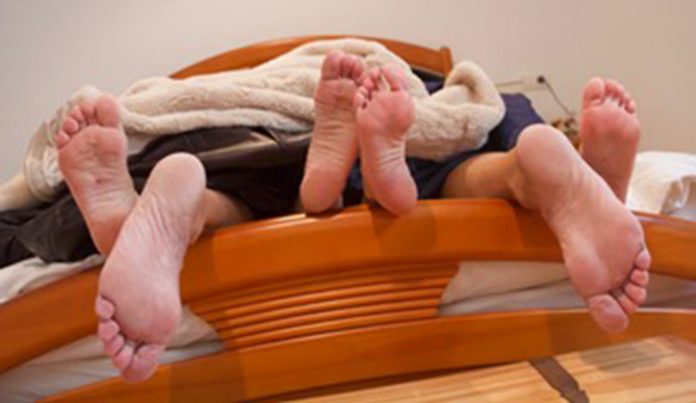It was W.C Fields who quipped that ‘the only cure for insomnia is loads of sleep’. Leaving all joking aside, not being able to sleep is a terrible affliction and dangerous for your health. Even minimal sleep loss takes a toll on your mood, energy and ability to handle stress.
At some time or other, we all cut back on our sleep for various reasons. The time for getting out of bed doesn’t seem as big a deal the night before, as it does in the morning. There is so much fun out there at night and so many interesting things to be doing instead of heading for the leaba. But there is a price to be paid for sleep deficiency. Without enough sleep, your body won’t be able to work, learn, create or communicate at the level close to your true potential.
Some bullish commentators will claim that you can train your mind and body to shave an hour’s sleep per night without affecting daytime functioning. This is not so for most of us. Whilst you can get away with less sleep without appearing noticeably sleepy, sacrificing an hour’s sleep every night will impinge on your daytime performance. In a crisis – like when a loved one is dangerously ill or dying, we can summon reserves to keep going for several nights on little shut-eye, but that can only be a temporary situation.
The amount of sleep required can vary from person to person. As we age, less will do to keep us going. Those who know and understand these things are pretty definite as to how much sleep the average person requires. A new-born baby sleeps up to eighteen hours. (promises … promises!!) The teenager should be getting near to ten hours and the rest of us, seven to nine hours. Two hours is a big difference there – but I would say nearer to seven is enough.
As you can see, the quantity of sleep you get is important, but we must also pay attention to the quality of that same sleep. Going to bed on a full stomach will affect how well you sleep. Taking too much caffeine drinks after six o’clock is said to have detrimental sleep consequences for most people; but I have to say that I am an exception and can drink mugs of coffee right up to bedtime and still sleep like a baby.
Air travel will play havoc with your sleep pattern. Jet-lag is not only in your imagination – as some would tell us. Most people take some time to reset their biological clock. Approximate time cues for adapting are usually around two hours a day at best. Consequently, it can take more than a week to fully adjust after travelling across several time zones. Workers doing shift work can have the same problem when switching to night shift.
I heard somebody on the radio state that more than a third of the adult population suffers from insomnia. Too many troubled sleepers – or perhaps that should read ‘wakers’, turn to sleeping pills to help them sleep: Not a good idea at all. Pills should only be taken on doctor’s advice and only for a short time. Sleeping pills are addictive, so that cure can be worse than the disease.
Where there is a problem with noise preventing slumber, there are now some very effective ear-muffs on the market; and where light or brightness keeps you awake, it is possible that a comfortable pair of dark eye goggles will do the trick.
On the rare occasions when sleep is evading me; rather than continuing to toss and turn, I get up and make a cup of tea. By the time the tea is downed I am ready for a return to the sack and sleep usually arrives quickly at the second time of asking. I don’t really know the best way to put this without paying a price … but can anyone tell me why it is that the snorer will always fall asleep first?
Then there are sleep-walkers and that must be a problem for them. I know little about it, but I did rear a son who once, in a very serious state of undress, got into bed with his granny; … but that’s for another column!
Don’t Forget
A man’s conscience, and not his mattress, can have a big bearing on how he sleeps.





